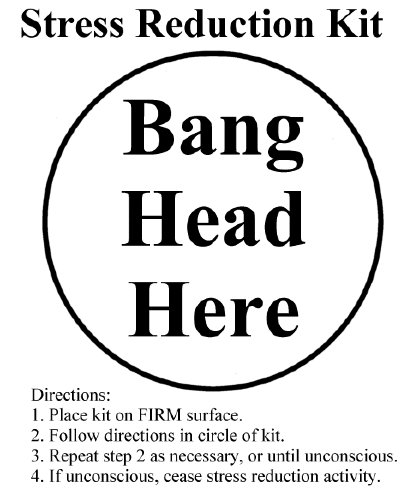The Word “Stress” – Meaningless For Professional Athletes?

Meandering around the internets the other day, I came across a compelling article by Steven Reiss, an Emeritus Professor of Psychology and Psychiatry at Ohio State University. It was his opening statement that caught my attention:
Athletes and coaches should not think in terms of how a player handles “stress”.
Reiss goes on to explain that the problem with that sort of thinking is that stress is “a common consequence of unrelated causes,” which does make sense – we’re under different kinds of stresses every day. The stress we face when we try something new for the first time is different than the stress we face when we’re scrambling to put together a presentation on a limited timetable.
Reiss lists four types of stress: the stresses of competition, anticipated failure, anticipated injury and unpreparedness. It was his comments on the latter two that I found particularly interesting. First, on the stress of anticipated injury:
This kind of stress de-motivates timid athletes. It is evident in, say, a little league game where a batter is afraid of being hit by the ball. At the professional level, timidity is uncommon. The professional teams that have taken the Reiss Motivational Profile questionnaire, for example, score low for anxiety sensitivity, which means they tend to be less fearful than the general public. For the most part, top level athletes tend to be brave people.
Leaving aside the salesmanship in that paragraph (later in the article Reiss lists an impressive array of sports within which the Reiss Motivational Profile is used) Reiss confirms something I’ve always felt was logical: timidity just isn’t that prevalent at the competitive level.
I imagine that’s particularly true in hockey. Hockey culture frowns at showing fear at the prospect of pain, and players suspected of being “soft” – not just as in playing a non-physical style, but as in fearing contact – are quickly ostracized. The epithets hurled at Patrick O’Sullivan last season after HNIC analyst Mike Milbury spotted him easing up to avoid a hit were tremendous, and he’s been characterized as gutless and cowardly ever since.
It’s a difficult stain to remove, and other facts (for instance, that O’Sullivan finished 33rd out of 580 forwards in blocked shots last season) generally don’t compensate for it. Players must take the hit, make the play, or face the fans wrath – even if they’ve been physically courageous in other areas. That’s just the way hockey culture is.
Writing about the stress of unpreparedness, Reiss noted that it could motivate or demotivate – that spontaneous athletes thrived when put on the spot, but that those who prepared carefully for games struggled when asked to perform without the benefit of that preparation. It reminded me of something that Ron Tugnutt said about Marty Turco (I can’t find the link now, but it has stuck with me) when asked about Turco’s playoff success (after two previously difficult playoff outings).
Tugnutt said that Turco used to change his pre-game routines before the playoffs, trying to get an extra edge for those incredibly important games, but that switch instead backfired and that by maintaining his regular season routine into the post-season helped the goaltender put up better performances.
Reiss’s conclusion returned to the main point of his article:
In conclusion, it is not valid to consider how an athlete reacts to "stress." "Stress" is just a common consequence of different motives, and it is the antecedent motive, not the consequent stress, that predicts performance. An athlete might be de-motivated by the stress of losing (even quit before the game is over) but motivated by the stress of competition. Another athlete could be de-motivated by the stress of poor preparation, while the same stress could motivate a different athlete, and yet neither athlete reacts much to the stress of being in a dangerous situation.
The relevance of that point is difficult to understate. It’s also one of the problems I have when fans (and too a much lesser extent the media) start psychoanalyzing players: these things are generally more complicated than ‘X isn’t a clutch player.’
Even if we could know that some kind of psychological issue is the big problem for a particular player – and as a rule, we can’t – it could be any combination of internal and external stresses causing that problem. It’s a subject far too complex for us to form firm opinions based on the body language and facial expressions that we observe from our living rooms.
Recent articles from Jonathan Willis





